Craggy Range trial holds water, nutrients
In a first for the region, Craggy Range winery is trialling two water saving techniques in tandem: biochar and sub surface irrigation (SSI).
Added 4 years ago
By Brenda Newth
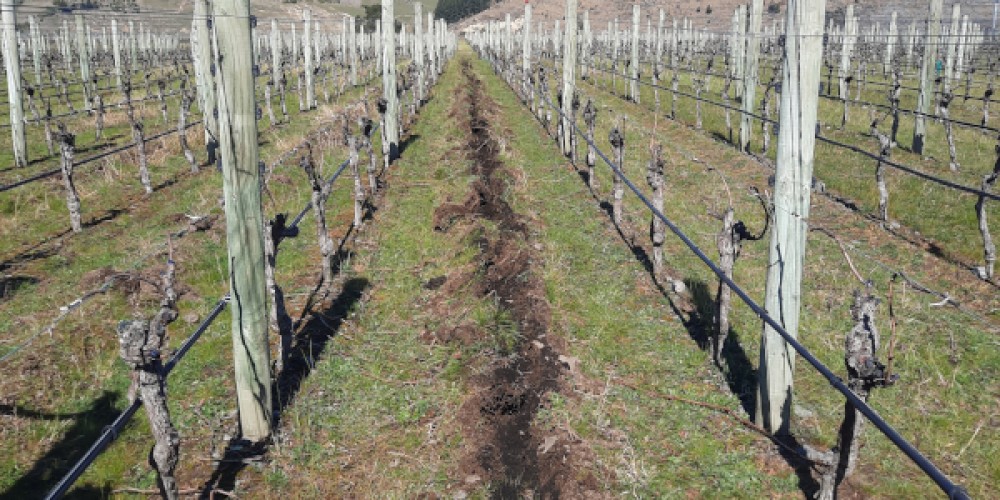
In a first for the region, Craggy Range winery is trialling two water saving techniques in tandem: biochar and sub surface irrigation (SSI).
Sub surface irrigation delivers water directly to plant roots, saving water, avoiding evaporation and reducing weed growth … modern tech. While using charcoal is a really old cultivation technique, says Raquel Kallas, Group Technical Officer for Craggy Range.
“Anything burnt in an oxygen free environment creates charcoal, which is pure carbon. It has a high surface area and porosity. It’s also charged and holds onto water like a sponge, and will also hold onto nutrients, like the nutrients we are trying to deliver to the vines.”
In Craggy Range’s case the charcoal has been supercharged with an activated biological component, compost, to deliver added nutrients to the vines. The charcoal is mole ploughed underground adjacent to SSI irrigation tubing.
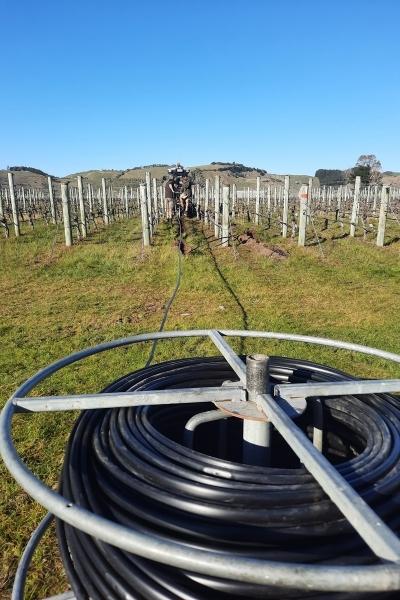
installing SSI
To Kallas’ knowledge, Craggy Range is the first winery in Hawke’s Bay trialling biochar, and only the second winery in New Zealand, behind James Dicey’s Central Otago winery to use it.
An established Gimblett Gravels block of 20 year old vines was chosen for the trial, with the SSI retrofitted. In the trial’s second year biochar was introduced alongside SSI in another section, bringing together ancient and new technologies.
Kallas says: “Having charcoal in combination with SSI creates a nutrient, water rich zone, underneath the soil surface to help the vines maintain good levels of vigour and water status.”
The project is in its first year, explains Raquel and it will take time to see the full benefits.
“The vineyard is 20 years old and now applying this technique, it will take at least a couple of years for the vine system to adjust.”
Immediate benefits include:
- Water conservation
- Reduction in weed growth and need for control
- Labour savings
- Maintain vine vigour
As to the cost of the trial, retrofitting existing vines is expensive, says Kallas. “SSI drip line is expensive and we bought in small quantities of charcoal for the trial. If we were to do this at scale, we would make our charcoal.
“This trial is giving us information and intelligence on how biochar and SSI in combination affects quality on a mature vineyard. If it’s proven then it is something that we would consider for new plantings.”
Craggy Range received a Callaghan Grant for an EIT student who ran the project under supervision this year, says Kallas.
Be the first to leave a comment.
Leave a comment
All comments are reviewed before they are published on the website. Your email address will not be published.
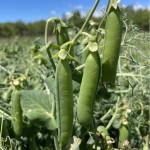
Carbon Positive Trial Update – February 2025
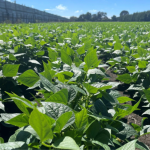
Carbon Positive Update

Community Engagement and Knowledge Sharing Strengthen the Carbon Positive Project
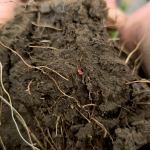
Are We Changing Soil Carbon Yet? Three Years In, the Jury’s Still Out

Farewell to Trustee Phil Schofield – A Foundational Leader of the HBFFCT
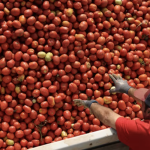

Join the conversation